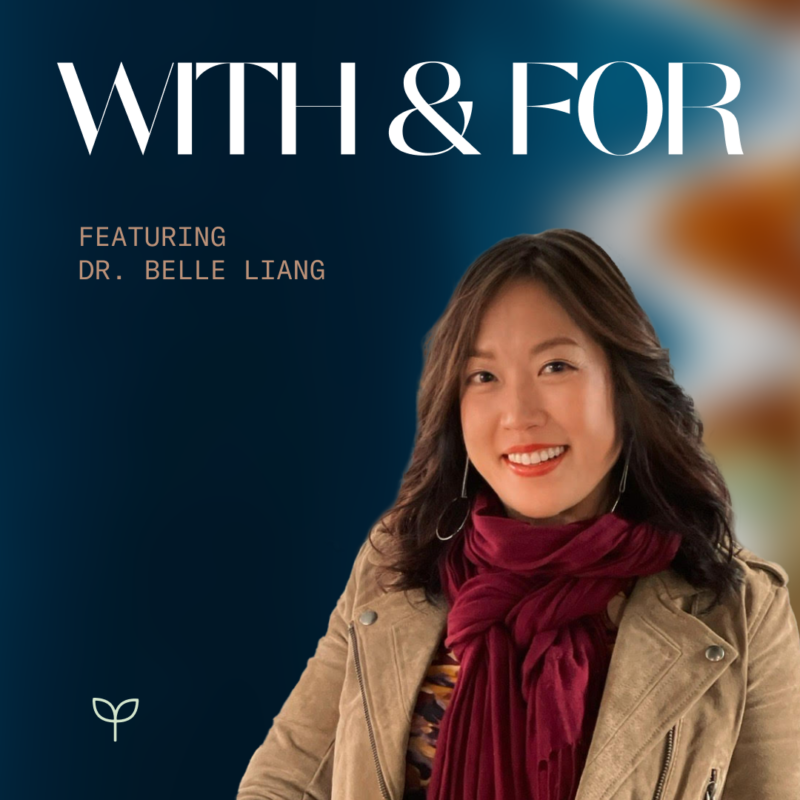Purpose is a Facet of Spiritual Health
When we consider what it means to have a healthy spirituality, the idea of discovering our purpose and living purposefully cannot be overlooked. Our spirituality provides more than a sense of connection, feelings of awe, or even an understanding of what is meaningful; spiritual health involves actionable responses, and it informs, directs, and motivates how we live our lives. Healthy spirituality leads to an understanding of purpose and asks us to consider what pursuits, relationships, and values make for a meaningful life.
As I’ve spoken with leaders and neighbors, I hear people say that we are experiencing a crisis around meaning. Young and old feel adrift. People are less rooted in faith and their belief communities—conventional sources of grounding, connecting, and directing. People seem to lack a true north. Isolation and loneliness exacerbate feelings of being untethered and aimless. In response to this crisis, I suggest we need to explore purpose. Purpose guides who we are becoming, and a purposeful journey tethers us to our communities and the work of our lives.
What is Purpose?
According to Dr. William Damon, author of The Path to Purpose, “Purpose is different than meaning, different than passion. Purpose is something that endures over time and has a beyond-the-self impact, accomplishing something that is of consequence to the world, however small that contribution may be. Saving someone who is drowning may be heroic, but it is a one time act, not your purpose in life. In effect, it’s about posturing our gifts outwardly, as if to say, ‘It’s not all about me.’”
The concept of purpose is probably not new to you, since it has captured the attention of the church, the academy, businesses, and philanthropies. The idea of living purposefully informs my work and how I live my life. Years ago, I had the opportunity to do a postdoctoral fellowship with Dr. Damon at Stanford University. He is a pioneer in the concept and research on purpose, and I consider him both a mentor and a friend. In his best-selling book, The Path to Purpose, Bill defines purpose as “an enduring and achievable goal that is meaningful to the individual and contributes to the world beyond the life of the individual.”
Damon says that purpose has three key facets:
- Purpose involves an actionable and enduring goal—something we can actually do and aim to accomplish.
- Purpose is personally meaningful and aligned to our strengths, skills, and natural proclivities. This includes living our own dreams, not the dreams of our parents or our partners.
- Purpose has a beyond-the-self orientation—it contributes beyond our own lives. It is bigger than making money or chasing happiness.
Sometimes people talk about general purposes like glorifying God. I think of glorifying God as a purpose with a capital “P,” but it’s too general to be an actionable purpose since there are an infinite amount of ways we can glorify God. A more actionable purpose would be how we use our individual gifts to glorify God.
How Can I Find Purpose in Life?
We can find purpose by reflecting on our deepest passions and greatest strengths and also the needs of the world—purpose is found at the intersection of these two things. If glorifying God is a sense of general purpose for you, a follow-up probe may be, “What are my unique gifts and strengths through which I may serve God and others?”
Pursuing purpose has to be held in balance with our call to be in relationship and community. A healthy pursuit of purpose helps us live virtuously and into our values, upholding the need to balance our goals with our roles and also our “souls.” Sacrificing our personal relationships for the sake of contributing to the greater good is not aligned with spiritual health.
Too often, pursuing our work for the sake of “the family” leads income earners to distance themselves from those they love most. While healthy spirituality upholds work, values, and virtuous behavior, it also asks us to balance our work with compassion, sabbath, and mercy. From the Christian perspective, we follow the example of the person of Jesus Christ.
Purpose is a multifaceted concept involving personal, relational, spiritual, and vocational aspirations. We find a sweet spot when who we are and what we find meaningful intersect. The more we understand ourselves and what deeply matters to us, the more we can pattern our lives around those yearnings. Much of our wellbeing and joy is tied to how closely our actual lives are aligned with our ideals. Consequently, becoming clear about what you love and value is important to living out your purpose.
Tools to Discover Our Purpose
The Relationship Between Joy and Purpose
There are times when we need to pause and reflect on where we have felt the greatest sources of joy in our lives. When have you felt invigorated and when have you felt delight? Conversely, when have you felt drained or experienced the drudgery of work? Exploring your sources of joy and also the things that make you upset or angry provides signals into what is meaningful and purposeful. I believe that when our work aligns with God’s purposes for us, we experience joy. Joy is a chief end of the Christian life. I find The Prayer of Examen to be a useful spiritual practice to guide me toward joy and also toward my deepest desires and awareness of God’s calling. Additionally, regular journaling, other forms of prayer, meditation, and sharing can serve to illuminate a sense of purpose. Joy is essential to finding purpose because it alerts us to when our actions are aligned with what matters to us and where we might contribute. Click on the button below to download an exercise exploring your joys. These experiences may unveil useful information to you about who you are and how God wants to use you.
Examine where and when you feel joyful or even if you feel joyful in your current endeavors. I’m not talking about moment-by-moment happiness—joy is a more profound feeling. Do you experience joy in your relationships and in the work that you do? Joy directs us toward connection and contribution. Joy connects us toward meaning and love.
A spiritually healthy life is a purposeful life, full of rich experiences of true joy. Ask yourself if you are on the right track. Although Picasso wasn’t known for his spiritual health, he was purposeful, and he said it well when he wrote: “The meaning of life is discovering our gift, the purpose of life is giving it away.”
Other Avenues for Exploration of Purpose
- Flow: Think about moments when time disappears and you are fully present. Moments of flow can give you insight into your purposes.
- Others oriented: How do you most naturally find yourself showing up for others?
- Needs of the world: Are you passionate or sensitive to particular needs in others and the world?
- What are your passions, talents, gifts—what are you good at? While passions are not the same as purpose, if personal passions can serve the needs of the world, they can be directed purposefully.
- Mindfulness/Self-reflection/Gratitude: Giving yourself space to engage mentally and emotionally with these topics, which can help you live with more intentionality as you want to pursue purposes.
May you find joy in discovering and giving away your gifts. Click below for an exercise to help identify your purposes.
The Power of Purpose by Dr. Pam King
Continue Exploring

Joy
Life Off Autopilot (Part 1): The Power of Purpose
Many go through the motions, feeling like there must be something more. To become more purposeful, look to joy for insight.

Dr. Belle Liang
How to Navigate Life: Psychological Tools to Find Your Purpose with Dr. Belle Liang
Are you looking for a sense of purpose? Does it feel like you’ve lost your way? Purpose is a vital part of our spiritual health. We know we need it, but for some of us, it can be so hard to find. Psychologist Belle Liang helps us navigate and thrive holistically through an understanding of our own journey and the stories that shape us. She names four essential elements of purpose: (1) character strengths, (2) skills and expertise, (3) deeply held values, and (4) a sense of contribution to the world. Includes a real-time practical exercise for aligning with our…

Practices
A Practice: Finding Purpose by Imagining the Future and Excavating the Past
This practice is taken from an interview with Dr. Belle Liang and is adapted from her book, How to Navigate Life.

